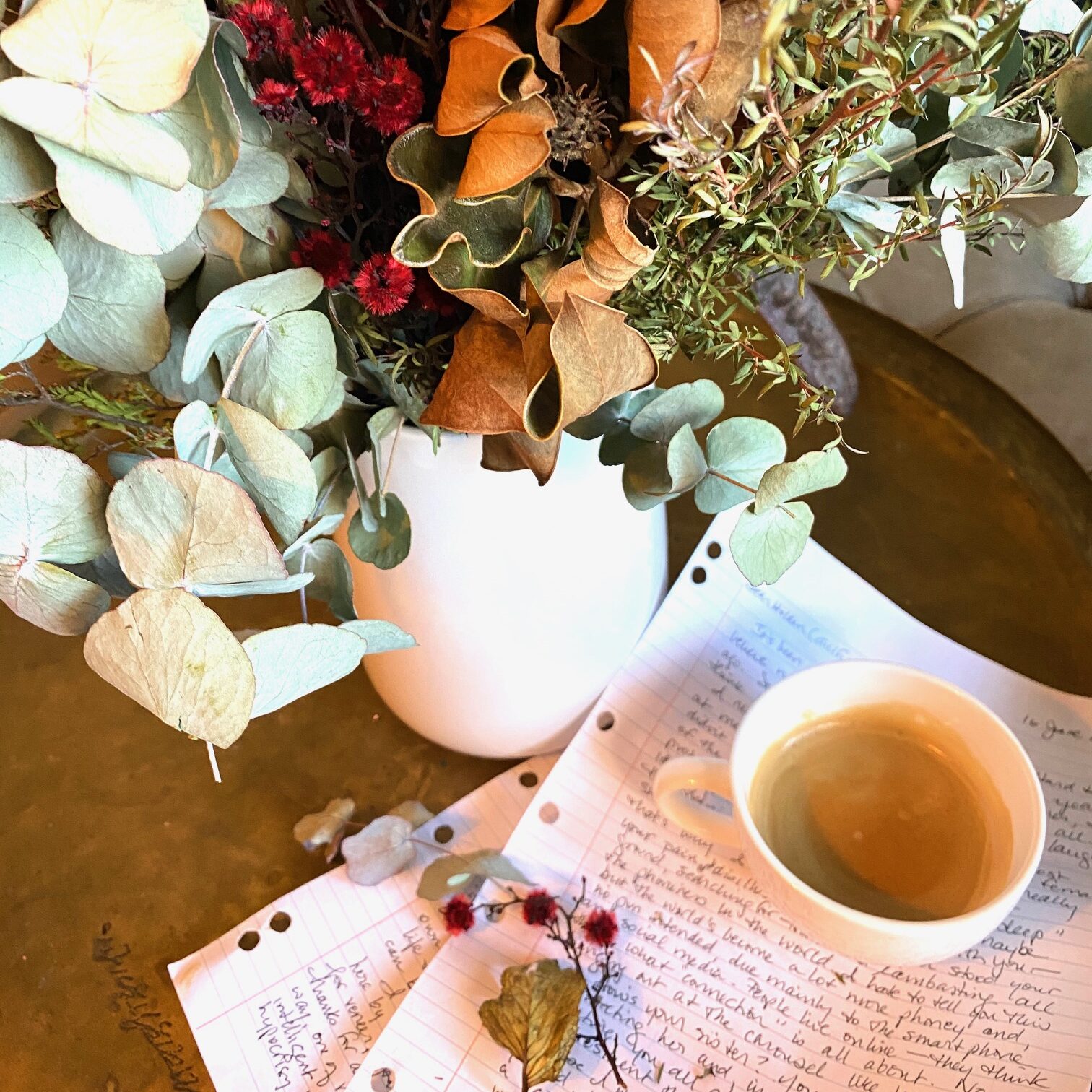
Letter to Holden Caulfield
21 June 2020
Dear Holden,
It’s been ages since I’ve written. Hard to believe my first letter to you was over forty-five years ago. So much has changed, though at times I think things haven’t really changed much at all.
Remember my high school friends laughing at me for reading “a boy’s book”? I didn’t know there was such a thing. I thought The Catcher in the Rye was for everyone – a story about feeling like you didn’t belong, about trying to find yourself in a world where nothing is as it seems. I guess that’s what growing up is all about. Maybe that’s what life is about. (I’m still searching.) Most of the “teen” books in the 1970s with female protagonists talked of romance, as if that was the only worthwhile pursuit for a young girl. Needless to say, I couldn’t identify with that type of thinking. I was too busy searching for the meaning of life – all the angsty, esoteric stuff that most of my peers were trying to avoid. (No wonder I ended up studying philosophy!) I was an outsider, skating around the rim of cliques and clubs, never fully inhabiting any of them. You wore your isolation as a badge of honour, sometimes I think to stand out, just as you did with that ridiculous red hunting hat.
Maybe that’s why I identified so much with your pain and disillusionment – your steadfast, at times, defiant search for truth, lambasting all the phoniness in the world. I hate to tell you, Holden, but the world’s become a lot phonier, thanks to smart phones (no pun intended) and social media. People now curate their lives online, presenting their best selves to engage with their virtual friends – people they’ve never met or even spoken to. They think that’s what human connection is all about. No one’s hanging out at the carousel anymore. Especially not lately, thanks to COVID-19 – a pandemic that silently gained strength in pockets of the world before unleashing chaos and exposing the very worst of mankind. Isolation has been the norm for months on end, young and old retreating within their walls and minds. I’m not sure if you’d be consoled or deeply disturbed by this. Thankfully, the situation is improving, though not as quickly as everyone hoped.
How’s your sister, Phoebe? You were so committed to protecting her and, in an odd way, she was protecting you all along. Young girls are a lot stronger and more resilient than people think. I know, because I was one of them, battling trauma, like you did. I’m a ‘catcher’ of sorts too, taking on other people’s despair, drawn to the weak and to those who can’t fight for themselves. But fighting battles, both real and imaginary, is finally taking a toll. Lately, I’m realising that much of the existential angst that has accompanied me throughout life has come from a place of grief. You said when your brother, Allie died, your family never really talked about it. That was the silent strength, the stoicism, of the 1950s, I suppose. Well, not much had changed by the ‘60s and ‘70s when I was growing up. When my father passed away at a relatively young age, my family just got on with life, reserving our grief for private moments, the slivers of solitude where the emptiness is palpable, only to cast aside the feelings when they proved too raw to be deciphered, let alone managed. If there’s a manual for working through loss, I’d love to get my hands on it. I really need to expand my emotional toolkit. Worse, I worry that I haven’t adequately prepared my children for the ebb and flow of life, despite my earnest intention to do so.
As you know, I also have a fascination (obsession?) with what’s wrong in the world. ‘Hell is other people,’ as Jean-Paul Sartre said, right? Like the man in my hotel lounge last night, who proceeded to eat potato chips voraciously – Crunch, crunch, sputter, slobber – while talking loudly on his mobile phone … on speaker, so the entire lounge could be privy to his not very enlightening conversation. The good news is I can channel these annoyances into my writing, changing identities to protect the guilty (and innocent), of course. Would you believe I’ve written a young adult novel? The fifteen-year old female protagonist is freefalling, as you were, trying to find herself in a haze of grief. Perhaps the existential similarities aren’t surprising, given that your story has remained with me for decades. A story of how mistakes don’t define us; how we’re all striving to find our passion, and purpose; how loss can be so distressing, so full of anguish, that at times it borders on the intolerable, yet often manifests as something else entirely. That’s why we have to look out for others, even when we’re knee deep in our own struggles. Negativity is like a black hole, sucking in everything and everyone around it, but choosing light can be liberating. It’s taken me a long time to realise this.
I miss you, Holden, but I feel like you’re still by my side – your caustic wit, your intolerance for veneer, your painstaking path to authenticity. Thanks for accompanying me on my journey. By the way, my son reminds me so much of you – intelligent, cynical, slightly jaded, constantly fighting the hypocrisy all around him, but ultimately grasping hope. It’s like having you right here.
Best wishes always,
Maura x
P.S. Why didn’t you join Phoebe on the carousel? It’s dizzying as hell but the view from inside looking out is ace, as you’d say.
Maura Pierlot is an award-winning author and playwright, part-time philosopher, former journalist and academic, and full-time cynic. Maura writes poetry, essays, plays and children’s/young adult fiction. She has a PhD in philosophy and enjoys writing about existential issues relating to memory, identity and self. For more information, visit: maurapierlot.com.
